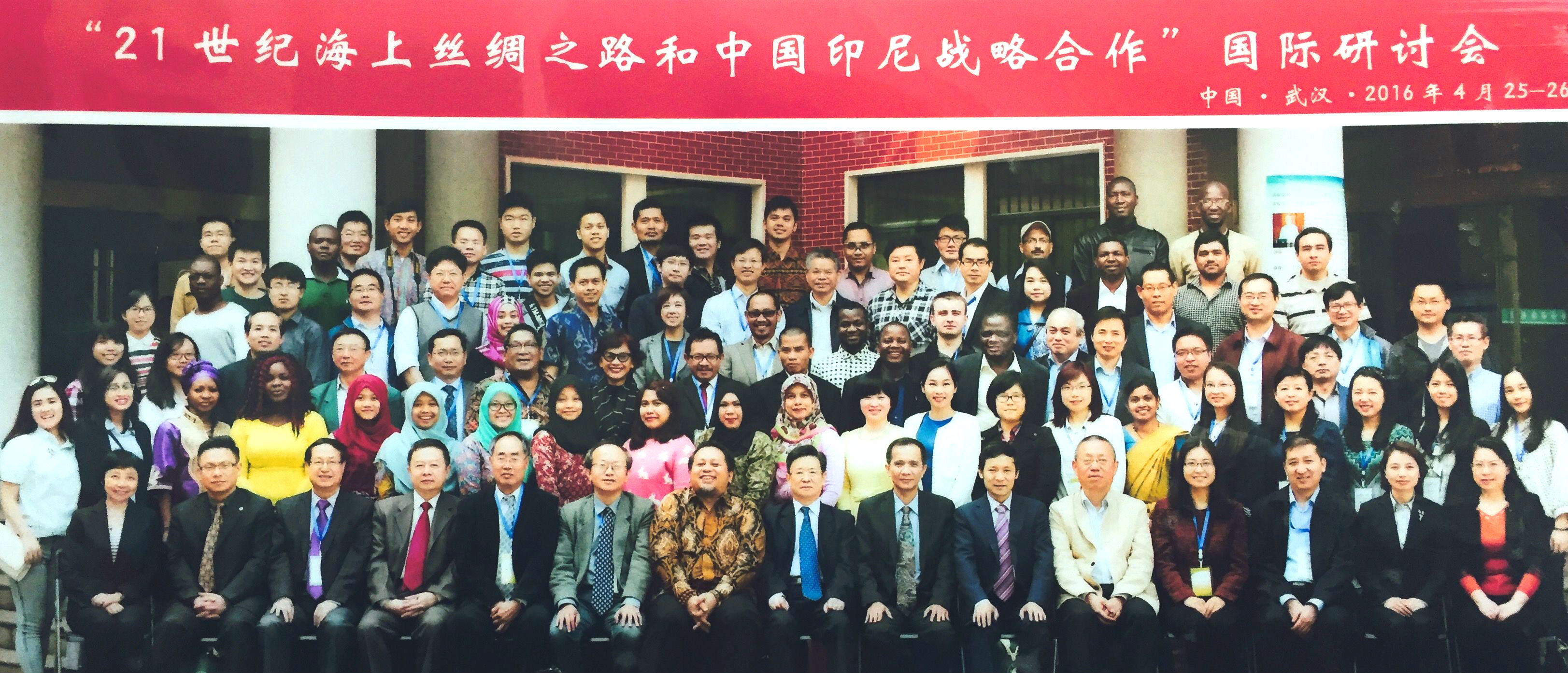
Dr. Tina S. Clemente, Associate Professor at the UP Asian Center and coordinator of the U.P. Center for Integrative and Development Studies' China/Strategic Studies program, was invited to participate in a conference on 21st Century Maritime Silk Road and Sino-Indonesian Strategic Cooperation, which was held on 25-26 April 2016 at the Yifu International Conference Center, Central China Normal University (CCNU) in Wuhan, China. The conference was co-sponsored by CCNU and the China Society for Southeast Asian Studies (CSSAS) and co-organized by the Institute of Political Science (IPC) and the Indonesian Studies Center (ISC), both units of CCNU.
The conference was well attended by experts from academe and think-tanks in various fields, including international relations, political science, economics, Chinese Studies and Indonesian Studies. Dr. Clemente’s presentation was entitled “Philippines-China Economic Diplomacy and the Maritime Silk Road: Views from the Philippines.”
In her presentation, she discussed bilateral economic engagement in trade, investment and official development assistance. She then looked at how economic diplomacy interests are framed in a spectrum where commercial gain and stability are binary extremes. She noted that empirical research on economic diplomacy has much room for improvement and that in developing countries including the Philippines, the tasks involved in trade and investment promotion can easily overwhelm the foreign relations apparatus.
Dr Clemente concluded that there is a need for further studies on how the Philippines can gainfully participate in China’s Maritime Silk Road initiative, drawing from an understanding of the nature of economic diplomacy between the Philippines and China, between the Philippines and ASEAN and between China and ASEAN.
Many Indonesian scholars participated in the conference. In terms of China's academic programs, it is interesting to note that Wuhan hosts an Indonesian Studies Center and Xiamen University gives prominence to Malaysian Studies. While Peking University has a Philippine Studies program that has been in place for over twenty years, other institutions such as Beijing Foreign Studies University, Guangxi University, Zhongshan University, and Jinan University have also recently established programs on Philippine studies.
Dr Clemente hopes to see stronger academic and think tank linkages between the Philippines and China, and sees growing opportunities for intellectual exchanges through reciprocal fellowships and research collaboration.
